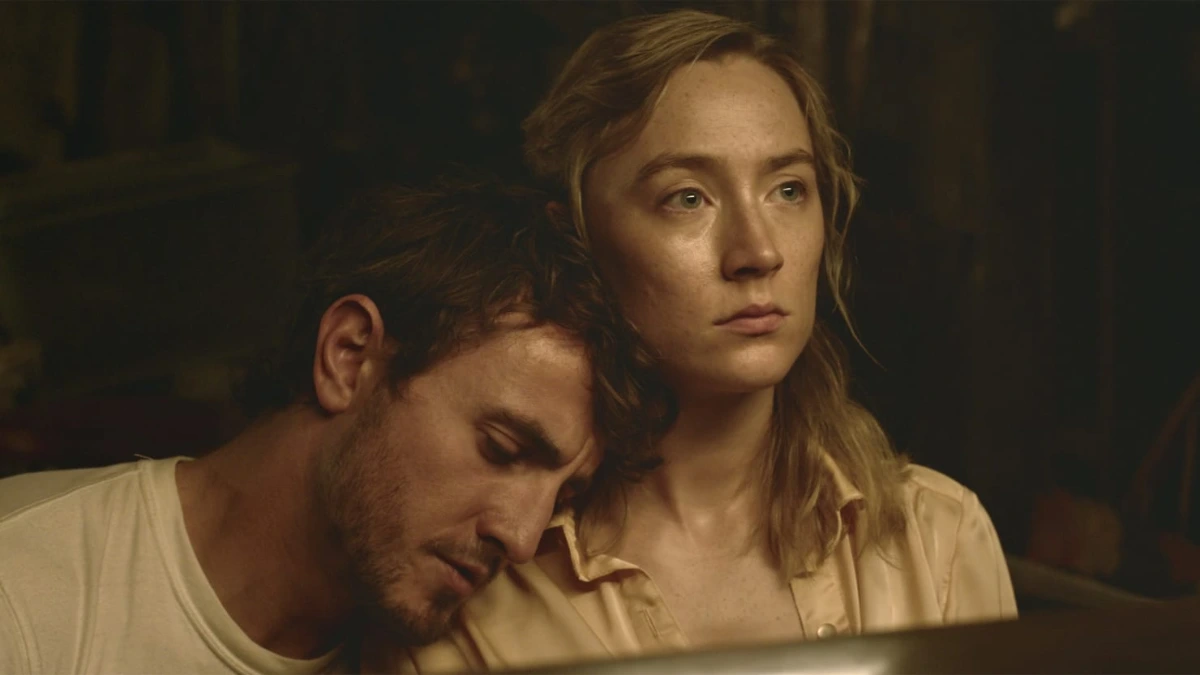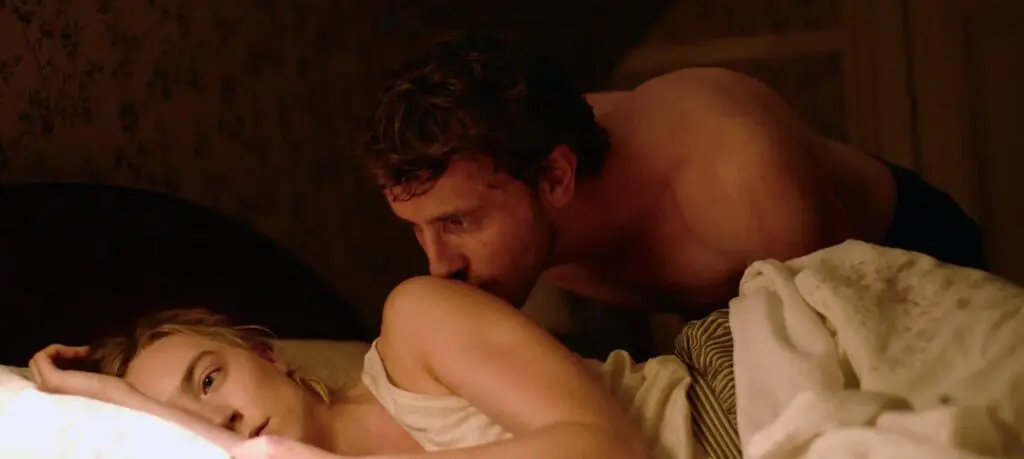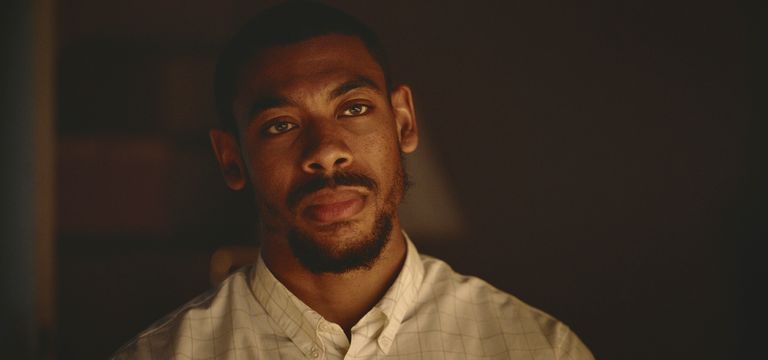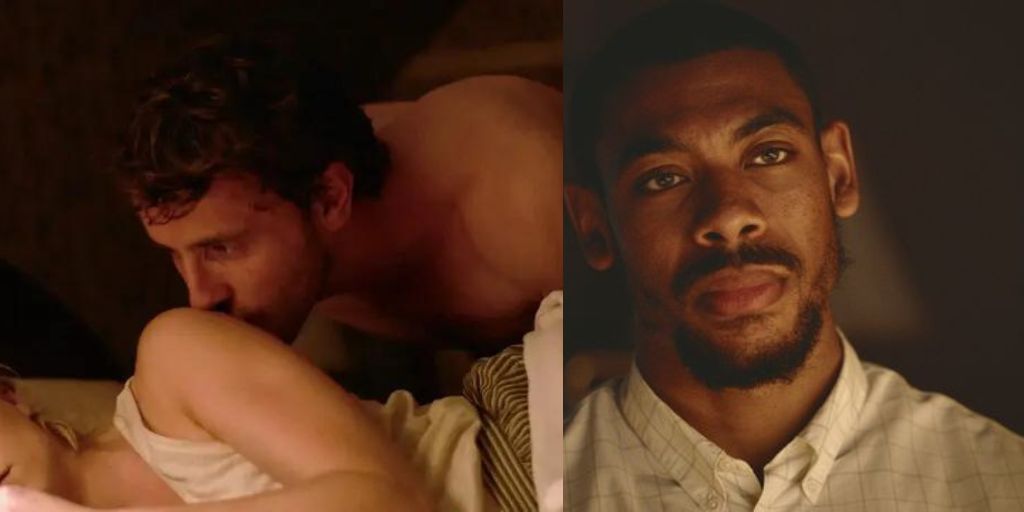Foe, which was co-written and directed by Garth Davis and is based on the bestselling novel by Iain Reid, is a captivating yet rather uninteresting depiction of a couple going through a difficult time. With the aid of artificial intelligence (AI) and robotic counterparts, Academy Award nominees Saoirse Ronan and Paul Mescal play the pair Hen and Junior.
The film’s conclusion explores themes of love, identity, and boundaries as the couple learns to be both together and apart. One of the most popular subjects of the previous year was artificial intelligence. The capitalist billionaires and their supporters never stop praising it. However, a sizable portion of the populace is concerned about how it will affect people’s lives.
With his latest science fiction thriller, Garth Davis starts a similar conversation. The romantic drama “Foe,” which stars Paul Mescal and Saoirse Ronan in the key parts, delves into our fears regarding the future.
Based on the same-titled novel by Iain Reid, it walks a tightrope between the desire for survival and advancement and whether or not both needs can coexist satisfactorily. In 2065, Earth becomes uninhabitable due to climate change.
A business named Utermore launched a new initiative known as the Climate Migration Strategy to test the practicality of developing new human communities in space and eventually replacing people on Earth with artificial intelligence clones dubbed “Human Substitutes.”
Junior (Mescal) and Hen (Ronan) get an unexpected visitor in the film’s opening scene. They are informed by government agent Terrance (Aaron Pierre) that Junior has been included in the program’s shortlist. They merely need to go about their regular lives for the next two years whilst Junior’s AI clone is being developed.

But nothing is as it seems; halfway through the movie, Foe exposes a huge plot surprise that will completely alter the couple’s situation. We examine Foe’s surprising conclusion now that the film is accessible on Prime Video in the UK.
Ending Explained
The Junior we’ve been seeing from the very beginning was the AI substitute, as the real Junior was already heading to test the space settlement. That first scene was their first encounter, the AI’s first day at home. Junior approaches Hen in bed after Terrance has left their residence.
However, she appears aloof. As a result, he ends up staying in the guest room for the night. Hen and Junior both go back to their regular lives the following day. She works at a neighborhood café, while Junior works in a meat factory. Sensing that their marriage is shattered, he continues to attempt to patch it up back home. She tests his recollection of their history by asking him about it.
They return to sharing a bed after that chat. He senses that she is concerned that he will have to depart shortly. She makes an effort to distract him from it. Terrance comes back a year later to talk about the installation. He demands that Junior be prepared to depart in a few weeks.
In addition, he intends to remain close by to keep a close eye on their marriage and gather information for his research. She becomes enraged because she believes they have more time left together. Later, she discards Junior’s belongings as an outlet for her rage. He soothes her.
One of them spots a cockroach in their cabinet. He calmly stares at it, not killing it out of fear of infestation. He wants to break free from the routine later on at work. He takes Hen out for a ride from their employment after deciding on a whim to meet her at the diner.
A day is spent by Hen and Junior enjoying each other’s company and brooding over their lives. When the day breaks, he witnesses a house suddenly erupting into flames. She follows to protect him as he dashes at it. He awakens the next morning with a glued hand.

Hen comforts him by explaining the circumstances around the ancient barn. Because Terrance thinks Junior’s injury will prevent him from being forced to leave, he believes Hen did this on purpose. He gets them ready for what’s going to happen later at dinner.
He gives Junior’s robot duplicate permission to remain back in exchange so that it can keep Hen company while he’s away. It’s a self-determining living form, as he puts it. Terrance pays little attention to Hen’s feelings during the conversation, instead concentrating on persuading Junior to accept his proposal.
As he eases Junior’s worry, he continues to inquire about his mental health. He asks Junior about his connection with Hen after giving him an injection later on. In Junior’s life, strange things begin to happen that he finds confusing.
Hen’s talk with Terrance is recorded, and he listens in on it. Speaking, she shares how hard it is for her to accept that their perfect lives are coming to an end. Gradually, Junior begins to realize odd things about his life with Hen. He also becomes irritated with Terrence’s meddling in their lives.
He becomes uncomfortable, doubtful of his reality, and perplexed. He eventually loses it and becomes enraged with this stranger, whom he believes has been attempting to ruin his marriage. Additionally, he becomes envious, believing Terrance is attempting to win his wife over.
He abruptly falls to the ground following the outburst. Hen trims her hair short a few hours later. That evening, she notices a light outside her home. Junior enters and hugs her. He claims that he missed her. How could that be true? Here’s “Foe’s” twist, though.
His copy is on the floor when Junior enters a different room. The individual we had been observing up until that point was Junior’s substitute. Terrance reveals that to keep his relationships harmonious on Earth, he had to lie. Terrance’s car’s headlights activated the robot Junior before he knocked on their door.
When the replacement realizes he isn’t the person he thought he was, he becomes devastated. At the prospect of losing someone she has loved spending more than a year with, Hen, too, becomes sad. Junior is offended when he realizes that. He later lets her know how angry he is and shows her his toxic, conceited, and entitled side.
He believes that because of her relationship with his clone, she has betrayed him. We find out in Foe’s shocking epilogue that Hen’s resident wasn’t Junior but rather his stand-alike. She got to love this individual after living with him for a long.
She assisted him in developing as a person. He made a steady effort to strengthen their union and make the most of their time together. His acts evoked a sense of wonder and excitement that she had likely missed in her real marriage.
The stand-in had the same vibe as Junior’s previous incarnation that Hen had grown to adore. On the other hand, Junior makes for very bad company. Not long after being back home, he exhibits his toxic side.
Hen rushes outside when it starts to rain, hoping they may spend some time together. He, however, lacks her zeal. Rather, he informs her that he does not need her assistance. Because he needs to feel that he owns something, Junior only wants to stay with her, unlike the replacement, who wants her company.
Hen did not want Junior’s replacement to go for this reason. She realizes that she might never be able to go back to how they were once Junior comes back. She destroys the piano out of rage and, in a courageous move, resolves to travel the world, something she had previously discussed with Terrance.

We witness Hen’s replacement coming home to live with Junior after “Foe.” She and he both enjoy each other’s company. They seem to enjoy each other’s company. Like Junior’s replacement, she notices a bug in their sink one day but does nothing about it. But Junior destroys it without thinking twice.
The real Hen, on the other hand, musters the bravery to depart and consider other possibilities. Foe’s conclusion thus emphasizes how erratic our emotional core is. Unlike Junior’s current iteration, Hen cherished the one from before.
He was only infatuated with the aspects of her that suited him. Thus, it emphasizes how uncertain everything concerning the future of humanity is, including concerns of the heart. Who knows if robots will be able to successfully replace humans? But even about the things we hold dearly human, we cannot rule out the chance that they might.





